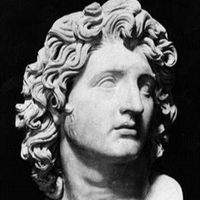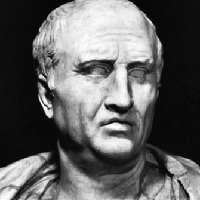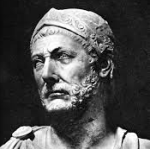{{ชื่อ}} ประเภทบุคลิกภาพ MBTI
บุคลิกภาพ
"Xerxes I the Great ประเภทบุคลิกภาพประเภทใด Xerxes I the Great เป็นประเภทบุคลิกภาพ ENTJ ใน mbti, 8w9 - so/sp - 835 ใน Enneagram, SCOEI ใน Big 5, SLE ใน Socionics"
Among Iranians, Xerxes is remembered for continuing his father's administrative reforms and embarking on massive architectural projects. Dominant Se users are too action-oriented to have the patience for this. Se, by nature, demands constant physical stimulation to gather information about the environment around it, therefore it constantly calls for action. Sure, we do have examples of his Se, as he was known for his lavish lifestyle and was very proactive during his successful campaign in Greece (the Achaemenid armies only lost after Xerxes stopped personally leading them, so his own record was successful) so we can conclude that he did have some form of Se, but judging by the actual historically-based interpretation of who he was, I do not think that he did have dominant Se because of what he was known to have spent most of his time on. I'd wager that he had dominant Te, given how much time he dedicated to organising his empire. He even personally organised the 100,000-300,000 strong army that he invaded Greece with, which to pull off *requires* high Te. Dominant Te with a strong Se effectively requires him to have been an ENTJ. The Bible cannot be included as a source on Xerxes, and neither can much of what Herodotus wrote, as both are unreliable narrators. Herodotus wanted to demonise Xerxes for propaganda purposes, and there's simply no evidence that the story of Purim ever happened. If it really did happen, the Jews would have been joined by plenty of other writers in the ancient world recording that it did. The Ancient Greeks would have certainly jumped at the chance to record it, and it is unlikely that Xerxes would have let off Haman without public humiliation or the events being recorded in some sort of rock relief somewhere. Xerxes evidently a flair for the dramatic (hence why he sent 300,000 men to Greece rather than a far smaller amount that would have been proportional to what he actually needed) and it was already established as a tradition by Darius that enemies would be made a display of publicly and that their deeds would be recorded so it really doesn't make any sense that there is no evidence of it ever having taken place at all. Essentially, when typing people, rely on what we can actually verify, and not off of hearsay.
ชีวประวัติ
Xerxes I (Old Persian: 𐎧𐏁𐎹𐎠𐎼𐏁𐎠 Xšayār̥šā; Greek: Ξέρξης; c. 518 – August 465 BC), commonly known as Xerxes the Great, was the fourth King of Kings of the Achaemenid Empire, ruling from 486 to 465 BC. He was the son and successor of Darius the Great (r. 522–486 BC) and his mother was Atossa, a daughter of Cyrus the Great (r. 550–530 BC), the founder of the Achaemenid empire. Like his father, he ruled the empire at its territorial apex. He ruled from 486 BC until his assassination in 465 BC at the hands of Artabanus, the commander of the royal bodyguard. Xerxes I is notable in Western history for his invasion of Greece in 480 BC. His forces temporarily overran mainland Greece north of the Isthmus of Corinth until losses at Salamis and Plataea a year later reversed these gains and ended the second invasion decisively. However, Xerxes successfully crushed revolts in Egypt and Babylon. Xerxes also oversaw the completion of various construction projects at Susa and Persepoli
บุคลิกภาพ correlate

Alexander the Great

Cleopatra

Julius Caesar

Sun Tzu

Cyrus the Great

Cicero

Hannibal Barca

Ying Zheng (Qin Shi Huang)







